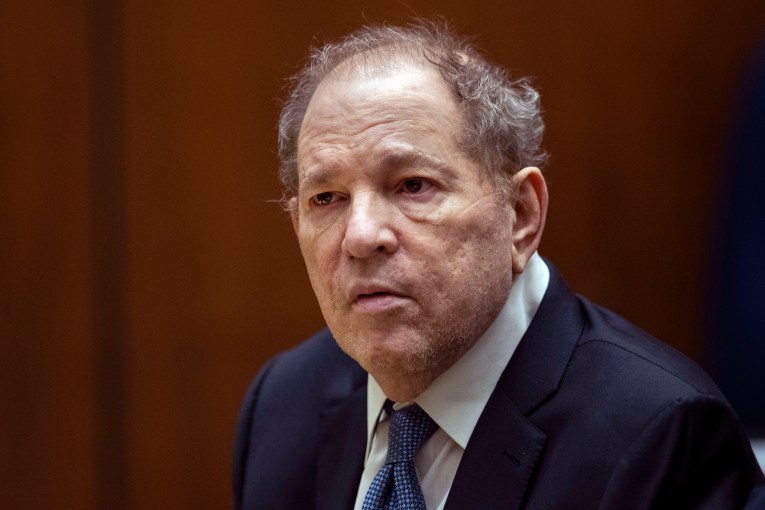Fifty years on from 1968, US history is repeating itself for the Democrats


Richard Nixon's 1972 victory should provide a sobering lesson for the Democrats of today. Photo: Getty
Here in the fevered, fractious United States, reappraisals of 1968 have bloomed like weeds these past seven months. Alternately banal, dutiful, apocalyptic and sentimental, they’ve all rewound and unspooled the grainy chaos of 50 years ago, more for spooky nostalgia than for any parallels into America’s present anger.
That’s too bad, because the next 1968 anniversary on the calendar – the Democratic National Convention in Chicago of late August – deserves some serious birthday forensics.
The scene that summer 50 years ago: the Democratic president, Lyndon Johnson, had announced in March he would not seek re-election in November, his once-triumphant administration crippled by the stalemate in Vietnam.
His Democratic rival and liberal nemesis, Bobby Kennedy, has been martyred, shot in Los Angeles in early June as he campaigned to replace Johnson for the Democratic nomination. Race riots have burned through dozens of cities that spring and early summer in the wake of Martin Luther King’s April assassination in Memphis. People are truly fearful the country is coming apart.

President Lyndon Johnson with civil rights leader Dr Martin Luther King Jr only days after the assassination of John F. Kennedy. Photo: Getty
Anti-war protestors, enraged by Johnson’s war escalation, have come to Chicago to hold the party accountable. Once the convention – a quadrennial political trade show where US political parties formally announce their presidential nominees – gets under way, the party’s left wing wages war with the old guard, who back Johnson’s vice-president and preferred choice, the bland and smiling Hubert Humphrey.
What plays out on nationwide TV for three days and nights is a political party having a psychotic episode. As protestors chant “The whole world’s watching”, Chicago cops hide their badges and club protestors in the streets before news cameras. Security men rough up reporters in the convention hall.
Mayor Richard Daley, an old-guard despot, is seen shouting “You f——Jew son of a bitch!” at a senator criticising the police tactics from the convention podium. The Democrats leave town bloodied – literally – with just two months until election day.
Why does all this mayhem matter 50 years later? Because of the inescapable similarities between the Democratic Party then and now, and the lessons that might be gleaned from what was wrought those August nights long ago.
After all the rioting and shouting, the Democrats nominated the establishment Humphrey. He went on to lose, albeit barely, to Richard Nixon, who capitalised on the fears of the “silent majority” who’d stared at their TV sets in horror, seeing a party that could not be trusted. Nixon also pursued the “Southern strategy,” winning over Conservative southern Democrats appalled by hippies, crime, drugs and civil rights.
So: an embattled establishment Democrat loses a tight race to a crafty GOP opportunist pandering to working- and middle-class fears. Sound familiar? So might this: Democrats, despondent after their loss, embark on a garment-rending post-mortem, with the party’s left and right wings struggling for dominance.
That post-1968 internal struggle is playing out again, right now, with progressives stars like Elizabeth Warren pushing the Democratic Party hard to the left. They believe the bland corporate centrism of the Democratic middle is useless against Donald Trump. They want real alternatives, new voices that will represent the disaffected and forgotten middle class that Trump essentially stole from the Democrats – like Nixon did 50 years ago.

Senator Elizabeth Warren is being touted as one of the answers to the ascendancy of Donald Trump. Photo: Getty
Hillary Clinton, this logic goes, was a flawed candidate with a weak message and a compromised record (read: Humphrey). Trump’s a disaster, they believe, but we didn’t serve up a true alternative.
They have a point: since 2016, progressive candidates around the country are surging. One candidate, Alexandria Ocasio-Cortez, a 28-year-old waitress from The Bronx, knocked off a powerful but out-of-touch Democratic incumbent in a June intra-party race with her message of – among other things – free college tuition, guaranteed jobs and abolishing the immigration police.
On the other side are Democratic centrists, who fear that far-left candidates are way ahead of the electorate, and whose progressive, socialist ideas make them unelectable.
These party officials want mainstream candidates, but better ones, racially diverse and in touch with working class needs. They fear a slate of lefties will be electoral suicide come 2020.

Alexandria Ocasio-Cortez, one of a number of progressives around the nation who are on the rise. Photo: Getty
The coming midterms in November should offer some direction. But who’s right? Is a leftist manifesto really what the Dems need? Or is it just finding more polished candidates in line with the status quo?
Which leads us back to the lessons of 1968. Despite the protests and the outrage, the Vietnam war raged on, with Nixon slow-walking a peace deal. In the face of that stalling, the Democrats swung left, with a coalition of students and minorities gaining more power. The result? In the 1972 presidential campaign the party nominated George McGovern, the anti-war senator from South Dakota.
And he lost – epically, historically, abjectly – to Nixon. He lost despite a war that had dragged on for nearly a decade, that had seen as many as 550,000 US soldiers stationed in Vietnam, that had claimed 58,000 lives. Despite that, Americans stuck with the man in office, wary of bouncing an incumbent and seemingly warier of McGovern’s plans.
McGovern won one state, Massachusetts – the state currently represented by Warren in the US Senate.
History isn’t a perfect fit, but ignoring this message seems reckless. Whether Democrats can absorb that message and still find a winning strategy is what politics is all about.
Larry Hackett is the former editor-in-chief of People magazine, and a current contributor to the US morning television news program Good Morning America








